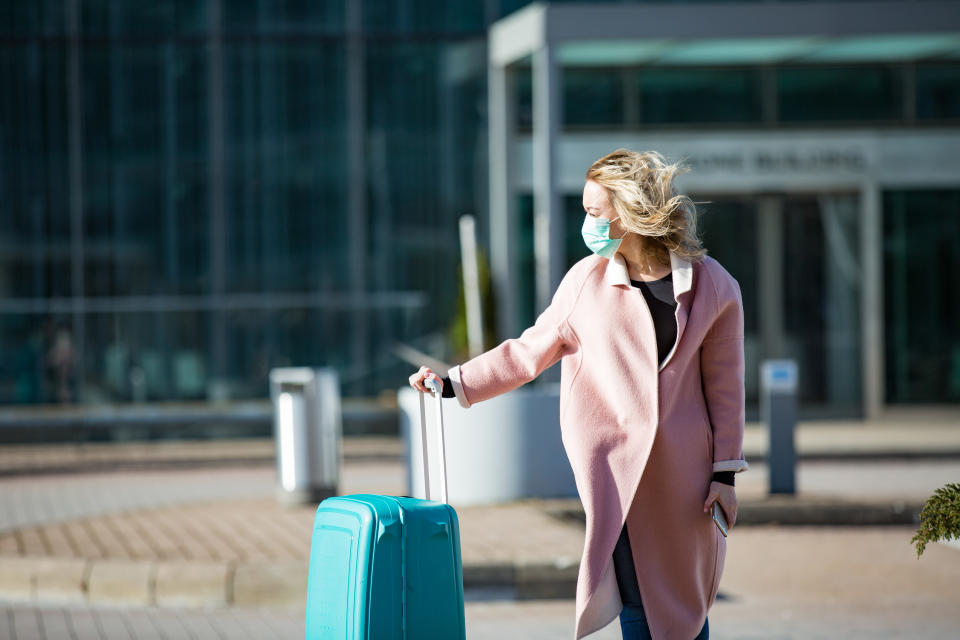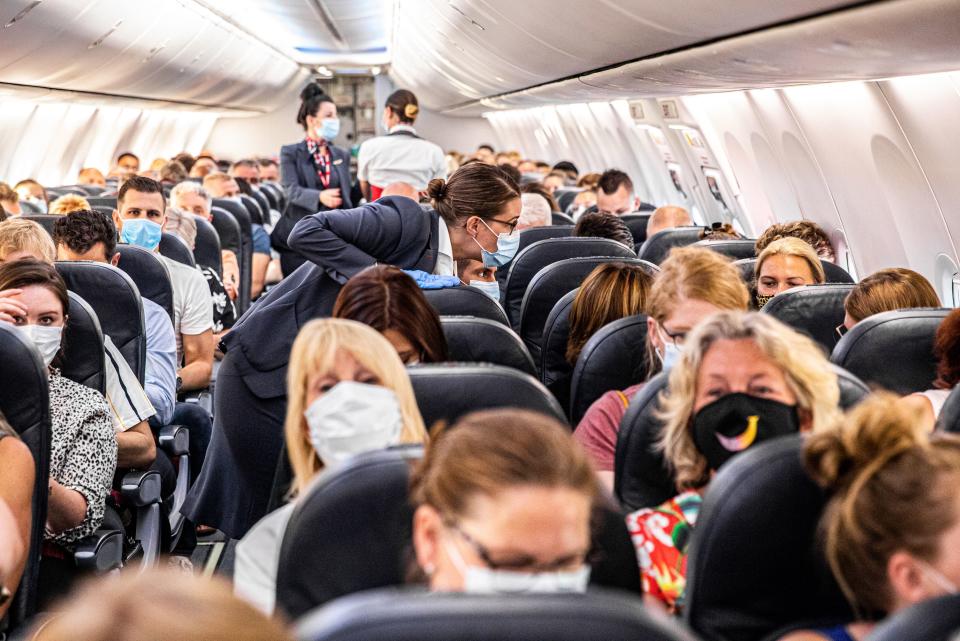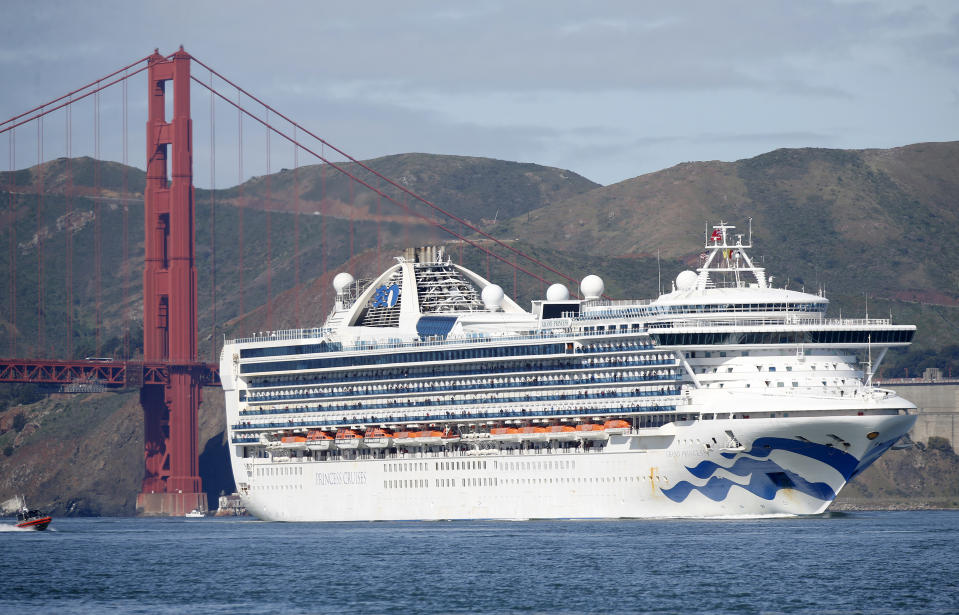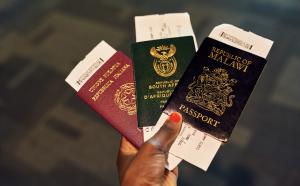Coronavirus and travel: What you need to know as states reopen
Editor’s note: The information in this article has been updated as of June 30, 2020. We will continue to update as information changes.
At a glance:
What the government advises
Where can you go?
Restrictions on those entering the United States
What the airlines are doing
What cruise ships are doing
What hotels are doing
Traveling by road and rails
Will travel insurance protect you?
How to travel safely
The global outbreak of COVID-19 has caused a massive disruption to nearly every facet of life.
Since the pandemic’s arrival in the U.S., states have enacted measures to keep residents at home and socially distanced to help stop the contagion. Now months later, bans have begun to lift and healthy Americans are anxious to reconnect with loved ones and explore what’s outside of their homes.
To a certain extent, travel is still possible, but it must be done responsibly for the sake of public health. Here’s what you need to know for any upcoming travel plans.

What the government advises
The Center of Disease Prevention and Control asks anyone thinking about traveling domestically to consider the following before booking their trip:
Is COVID-19 spreading in the area where you’re going?
Is COVID-19 spreading in your area?
Will you or your fellow travelers be in close contact with others during your trip?
Are you or your fellow traveler(s) more likely to get severe illness if you get COVID-19?
Do you have a plan for taking time off from work or school in case you must stay home for 14 days for self-monitoring or if you get sick with COVID-19?
Does the state or local government where you live or at your destination require you to self-quarantine for 14-days after traveling?
Do you live with someone who is older or has a serious, chronic medical condition?
The CDC requests anyone who is returning to the United States from an international origin, cruise ship, or river cruise to stay home and self-quarantine for 14-days from the point of return. During that time, people are encouraged to monitor their symptoms, social distance, and not use public transportation or ride-shares.
The U.S. State Department issued a Global Level 4 Health Advisory - Do Not Travel, advising all Americans to avoid any international travel due to the coronavirus outbreak on March 31, 2020. If you decide to travel internationally, the State Department recommends that you have a plan that does not rely on the U.S. government for help.
Where can you go?
The widespread worry over air travel has sparked a trend for swapping planes for cars and taking summer road trips. When mapping out a route, know that depending on where you live, you may be required to self-quarantine for 14 days upon arrival in your destination.
Cashay has put together a list of what each state requires for out-of-state visitors here.
Most recently, New York, New Jersey, and Connecticut enacted a requirement of certain out-of-state visitors to self-quarantine for 14 days upon arrival. The advisory applies to states with a “positive test rate higher than 10 per 100,000 residents over a 7-day rolling average or a state with a 10% or higher positivity rate over a 7-day rolling average.”
Sixteen states — Alabama, Arkansas, Arizona, California, Florida, Georgia, Iowa, Indiana, Louisiana, Mississippi, North Carolina, Nevada, South Carolina, Tennessee, Texas, and Utah — now exceed that threshold to enter New York, as of Tuesday.
The European Union also plans to bar U.S. travelers from the 27-country bloc when lockdowns lift on July 1, according to media reports. The EU made its decision based on certain scientific criteria, such as infection rates, and the credibility of a nation’s public health reporting. The list will be updated every two weeks.
Restrictions on those entering the United States

President Trump issued a proclamation on June 15 with restrictions placed on who can and cannot enter the United States, based on the travelers’ point of origin. Certain individuals, not U.S. citizens, coming into the U.S. from the following countries will be denied entry at the borders.
Asia
China
Iran
Europe
Austria, Belgium, Czech Republic, Denmark, England, Estonia, Finland, France, Germany, Greece, Hungary, Iceland, Italy, Latvia, Liechtenstein, Lithuania, Luxembourg, Malta, Netherlands, Northern Ireland, Norway, Poland, Portugal, Scotland, Slovakia, Slovenia, Spain, Sweden, Switzerland, Monaco, San Marino, Vatican City, and Wales
South America
Brazil
What the airlines are doing

The advisories have caused an air traffic decrease and the major U.S. carriers have responded to the outbreak with augmented or canceled select routes and are waiving passenger change fees.
Airlines have also implemented strict cleaning measures that have upended many of the tokens once associated with air travel, like removing in-flight magazines and complimentary pillows and blankets.
There is also industry-wide reduced in-flight food and beverage service, shuttered airport lounges, and touchless check-in. Crew and customer service agents now wear face masks at all times and many airlines installed upgraded air filtration systems on aircraft.
Alaska Airlines: For tickets purchased on/before Feb. 26, 2020 for travel through Dec. 31, 2020 and new tickets purchased between Feb. 27 and July 30, 2021, the airline will suspend change and cancellation fees.
Required face covering? Yes, for guests aged 12 and over.
American Airlines: There are no change fees for all ticketed passengers who book before June 30, 2020 as long and they can travel before Dec. 31, 2021.
Required face covering? Yes, except for “very young children or anyone with a condition that prevents them from wearing one.”
Delta: Delta is waiving change fees for all guests for flights purchased through July 31, 2020. The airline also reduced aircraft occupancy by as much as 75% in certain cabins and is blocking the middle seat from being sold through Sept. 30, 2020.
Required face covering? Yes, however children and those who cannot keep a face covering in place are exempt.
Hawaiian Airlines: All U.S. mainland routes are suspended through July 27, 2020, except for the daily service between Honolulu and Los Angeles/San Francisco/Seattle. Service from Honolulu to Portland will resume on July 1 and service from Honolulu to San Diego and Sacramento will resume on July 15.
International service from Honolulu to Japan, South Korea, and Tahiti is suspended through July 27, 2020. Service from Honolulu to Australia, New Zealand, and American Samoa will resume July 31, 2020.
Hawaiian is also waiving change fees for flights purchased from March 1 to June 30, 2020 as long as travel is rebooked by May 31, 2022.
Required face covering? Yes, however children and those with a medical condition or disability preventing use will be exempt.
JetBlue: The airline will waive change and cancellation fees for flights booked before June 30, 2020.
JetBlue has consolidated routes in Boston, Los Angeles, New York City, San Francisco, and Washington, D.C. and temporarily suspended service in other cities through June 30, 2020. There is widespread suspension between U.S. and international cities.
Required face covering? Yes, with the exception of young children.
Southwest Air: The airline famously doesn’t charge change fees, but is extending its policy so ticketed customers can rebook through Sept. 2022.
Passengers should also be aware of network-wide travel disruptions to both domestic and international destinations.
Required face covering? Yes, with the exception of young children.
United Airlines: The airline is waiving change fees for travel through June 30, 2020, provided they rebook within 24 months of the original travel date.
Required face covering? Yes, with the exception of young children and travelers with medical conditions or disabilities that prevent them from wearing a face covering.
What cruise ships are doing

The cruise industry has largely stopped operations. Here’s what to know.
Carnival Corp: The company is suspending operations of its fleet through Sept. 30, 2020 with certain sailings like Alaska and Hawaii suspended through Nov. 1, 2020. Guests have the option of receiving a credit to rebook by May 31, 2021 or a refund.
Norweigan: All sailings are suspended through Aug. 31, 2020, with sailings to Alaska suspended through Oct. 12, 2020. Affected guests automatically receive a credit for 125% of the original amount paid on June 25 to be used on any Norweigan cruise through 2022. Guests can also request a refund.
Royal Caribbean: Royal Caribbean Cruises has suspended most sailings through Sept. 15, 2020, with certain destinations like Bermuda that are suspended through Oct. 31, 2020.
Viking Ocean Cruises: The company is suspending all embarkations through Aug. 31, 2020. Those with cruise reservations that fall in that window can get a future cruise voucher valued at 125% of what you paid or a refund equal to what you have paid. The future cruise voucher can be used to make a new reservation over the next 24 months.
What hotels are doing

Many of the major U.S.-based hotel chains are waiving cancellation fees for guests who’ve had their travel plans derailed.
Pre-coronavirus, hotel guests gave little thought to crawling under the covers and sleeping in a bed that perhaps thousands have slept in before. The same is said for wearing hotel robes or touching TV remote controls and bathroom accessories like hair dryers.
For the foreseeable future, hotel service will be a stripped-down version of what guests are accustomed to. Communal features like fitness centers, minibars, or buffets have been phased out as CDC-compliant higher-grade cleaning measures have been implemented.
Marriott International: Guests with existing reservations for any future arrival date are allowed full changes or cancellation without a charge up to 24 hours prior to arrival, as long as the change or cancellation is made by June 30, 2020.
Hilton Worldwide: The company is offering guests with reservations — even non-cancellable stays — a full refund for stays on or before June 30, 2020.
Hyatt Hotels Corp: All existing reservations made before July 1, 2020 for arrivals through July 31, 2021 can be changed or cancelled at no charge up to 24 hours before scheduled arrival.
Any reservation made after July 1, 2020 — for any future arrival dates through July 31, 2021 — can be changed or canceled at no charge up to 24 hours before scheduled arrival.
InterContinental Hotels Group: The hotel chain, which includes such brands as Candlewood Suites, Holiday Inn, Staybridge Suites, Crowne Plaza among others, is waiving cancellation and change fees for bookings made prior to April 6, 2020 for stays up to Aug. 31, 2020.
Wyndham Hotels & Resorts: Guests traveling with new or existing direct bookings for stays at any Wyndham property through June 30, 2020 will have their cancellation or change penalties waived if the request is received at least 24 hours prior to arrival (or less if permitted by the hotel’s policy).
Airbnb: Guests who booked prior to March 15, 2020 for check-ins up to July 31, 2020 will receive full refunds or travel credit for cancellations of trips that were impacted by COVID-19.
Vrbo: For guests who booked before March 13, 2020 for stays between May 1 and June 30, 2020, the company is only refunding fees if the local governments have enacted laws that restrict or prohibit travel.
Traveling by road and rails

Amtrak: Passengers traveling have the ability to change without a fee through Aug. 31, 2020.
Required face covering? Yes.
Greyhound: The company is offering free ticket reissues with no change fee for any passenger with concerns about traveling.
Required face covering? Yes.
Will travel insurance protect you?

With travel advisories changing day to day, relying on insurance feels like a natural default. Many major credit cards have associated travel insurance policies, but Matt Schulz, chief industry analyst at CompareCards by LendingTree, told Cashay that credit card travel insurance policies aren’t likely to safeguard against broken plans due to coronavirus.
“It's about you and what you have and your specific situation,” Schulz said.
That means if you’re playing it safe and proactively canceling or postponing your trip — regardless of destination — because of the threat of coronavirus, your card’s travel insurance policy probably isn't going to help you, he said.
There’s one instance where your card may kick in, he said. If you get sick on your trip and a doctor forces you to be quarantined, your card’s travel insurance may activate to help you.
Travel insurance policies through credit cards are not uniform so it’s best to call the issuer and get the details on your specific plan. Schulz also suggested buying a supplemental insurance policy instead of relying on just your credit card.

Coverage differs by policy, but travel insurance reimburses you or offers services when your trip goes sideways due to lost or stolen luggage, a medical emergency, a missed flight due to an emergency, illness while traveling, or a death at home requires you to cut your trip short.
However, buying travel insurance is not a sure thing when it comes to protecting yourself and your trip against COVID-19; Allianz Global Assistance policies don’t typically cover against epidemics or the fear of travel.
According to the company's website:
“Our travel protection plans do not generally cover losses directly or indirectly related to known, foreseeable, or expected events, epidemics, government prohibitions, warnings, or travel advisories, or fear of travel.”
However, the insurer is bending its policy to accommodate the following occurrences:
Under Emergency Medical Care Benefit: Emergency medical care for a customer who becomes ill with COVID-19 while on their trip.
Under Trip Cancellation or Trip Interruption Benefits: Trip cancellation and trip interruption if a customer becomes ill with COVID-19 either before or during their trip.”
How to travel safely
If you still plan to travel against the State Department’s recommendation, the CDC urges all to be more judicious by taking steps to protect themselves from COVID-19 like frequently washing their hands, using disposable tissues to cough or sneeze, cleaning all “high-touch” surfaces like cell phones, doorknobs, and remote controls everyday.
The CDC also encourages travelers to pack enough medicine and hand sanitizer for the duration of their trip, wear a face mask when in public, and pack water and shelf-stable food in the event stores and restaurants are closed.
Stephanie is a reporter for Yahoo Money and Cashay, a new personal finance website. She can be reached at stephanie.asymkos@yahoofinance.com. Follow her on Twitter @SJAsymkos.
Read more information and tips in our Travel tips section






